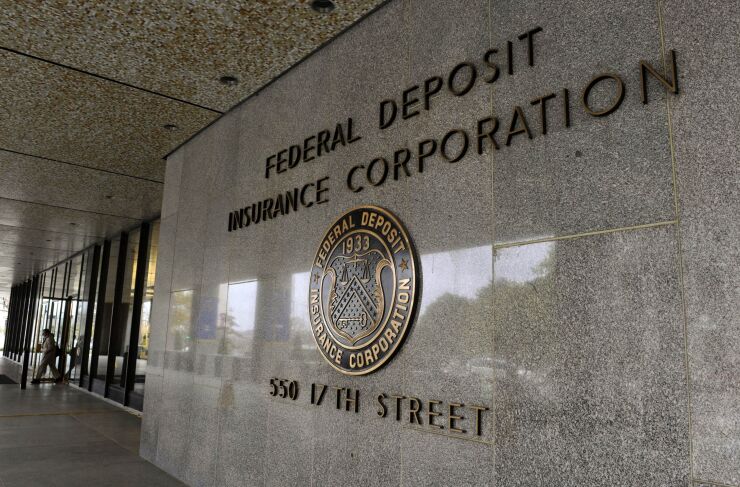The housing finance industry supports a proposed rule revision that would exempt banks regulated by the Federal Deposit Insurance Corp. from an RMBS disclosure requirement.
The proposal addresses a discrepancy between Securities and Exchange Commission's rules and the Federal Deposit Insurance Corp.'s related to whether private placements are exempt from the SEC's Reg AB disclosure requirements. Private placements have an exemption under the SEC's rules, but not under the FDIC's. This imposes a disclosure requirement on depositories that nonbanks don't have.

The Housing Policy Council, JPMorgan Chase, the Mortgage Bankers Association and the American Bankers Association all support changing this aspect of the FDIC's Securitization Safe Harbor rule.
HPC, example, said in a letter that it "appreciates the FDIC acknowledging that Reg AB is a regulatory impediment and its objective of removing the regulatory disincentive for insured depository institutions is to issue residential mortgage-backed securities."
But other commenters have mixed or opposing views.
Members of the Structured Finance Association support consistent disclosure requirements regardless of institution or regulator, but its investor members believe the SEC's disclosure requirements should apply to private placements, and Better Markets, an independent nonprofit founded in the financial crisis' wake, opposes the change.
The proposal is "especially troubling in light of the undeniable and central role that opaque asset-backed securities, including residential mortgage-backed securities, played in the financial crisis, which triggered a wave of bank failures and inflicted huge losses on the deposit insurance fund," the nonprofit said in a letter to the FDIC.
The FDIC's securitization safe harbor rule




